Have you ever heard the phrase “Yaoyorozu no Kami”?
It often comes up in conversations about Japanese shrines and festivals. But if someone asked, “So, what exactly are these gods?”—many people might struggle to explain clearly.
In Japan, there has long been a belief that gods dwell in everything around us, from the mountains and rivers to the tools we use every day. This way of thinking is summed up in the expression “Yaoyorozu no Kami.”
In this article, let’s explore what this fascinating concept really means. Don’t worry—we’ll skip the overly complicated mythology lectures and instead enjoy a fun, approachable introduction to the idea of “gods everywhere” in Japanese culture.
What Does “Yaoyorozu no Kami” Mean?

Today’s topic is Yaoyorozu no Kami.
The meaning of “Yaoyorozu”

The word “Yaoyorozu” doesn’t literally mean “eight million.” Instead, it’s an old expression meaning “countless” or “too many to number.” In other words, it suggests there are gods everywhere, in all things.
Ancient Japanese people saw natural forces and mysterious events as divine. A sudden thunderclap, a strong wind, or the growth of rice—all were thought to be the work of gods.

In written records, the phrase appears in the Kojiki, in the story of the Ama-no-Iwato (Heavenly Rock Cave), where it is said that the Yaoyorozu no Kami (countless gods) gathered together. Here, “yaoyorozu” is used to mean an extremely large number.

Ah, that’s the famous Japanese myth where Amaterasu Ōmikami, the sun goddess, hides herself in the cave. If you are interested in the story, check the article below as well!
Gods dwelling in nature and daily life
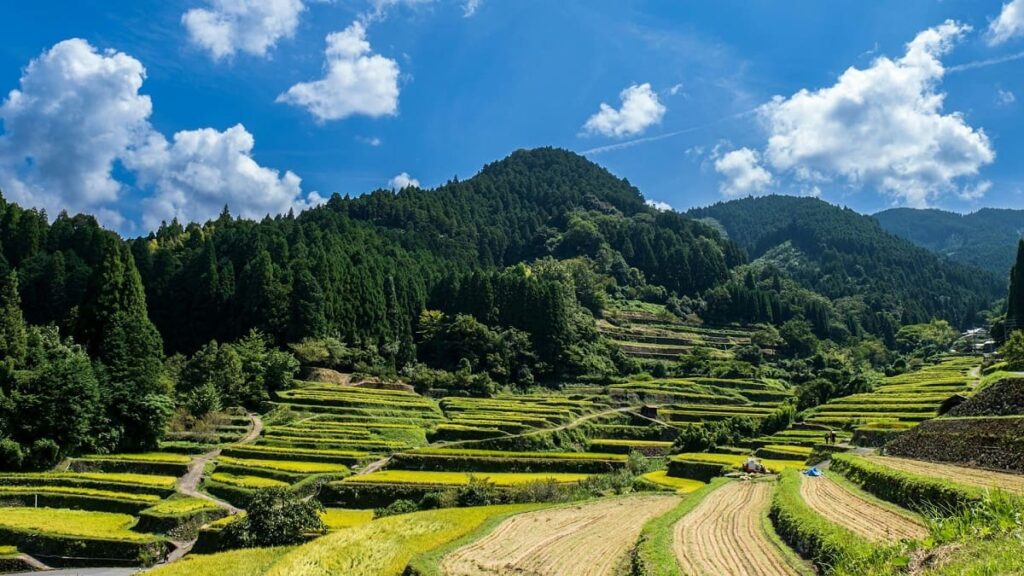
Unlike the single, absolute God of monotheistic religions, Japanese gods are not fixed in one form. Instead, they are found in nature and daily life. Mountains, rivers, oceans, forests, fire, wind, rice plants, even a household well—each could be home to a god.
For example, the “mountain god” watches over forests and animals, while the “rice field god” ensures a good harvest. These gods are closely tied to human life.
The unique Japanese sense of divine presence
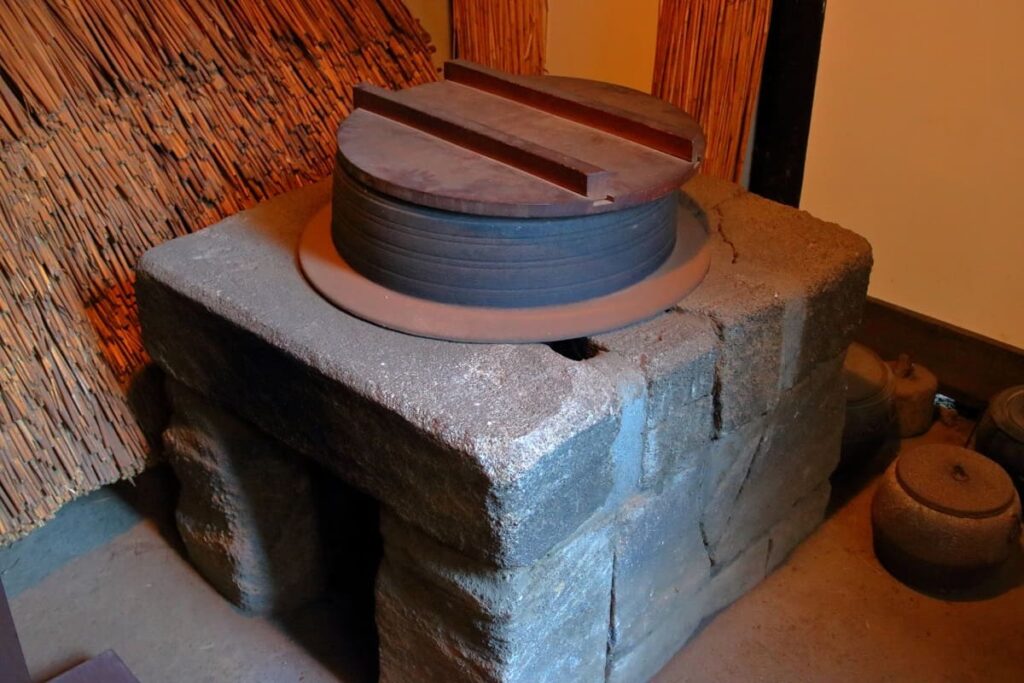
What makes Japanese gods special is their closeness to people’s daily lives. Rather than being distant, absolute beings, they are familiar presences that support everyday living.
That’s why there are even gods of the kitchen and the toilet! It might sound humorous, but it reflects how deeply gratitude and respect were woven into people’s lives.
Examples of Yaoyorozu no Kami
Mountain and river gods
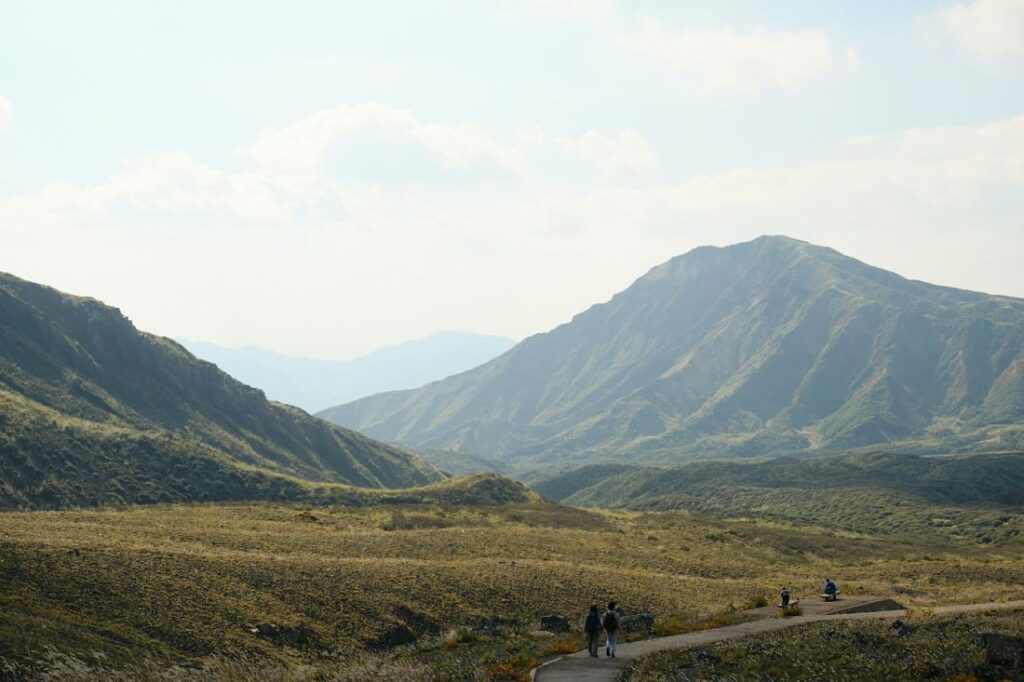
In Japanese mythology, mountains and rivers are often personified as gods. Mountains, for example, provide food and timber but can also bring dangerous disasters. To honor this dual nature, people believed that mountain gods lived there and offered prayers before hunting or climbing.
Similarly, rivers and seas, vital for farming and fishing, were believed to be protected by water gods.
Household gods

Traditional Japanese homes also had protective deities. The hearth god watched over the kitchen and family meals, while the toilet god kept the household clean and safe.
Even today, New Year’s customs like decorating with shimenawa (sacred ropes) or kagami mochi (rice cakes) reflect the idea of welcoming household gods.
Roadside and land-protecting gods
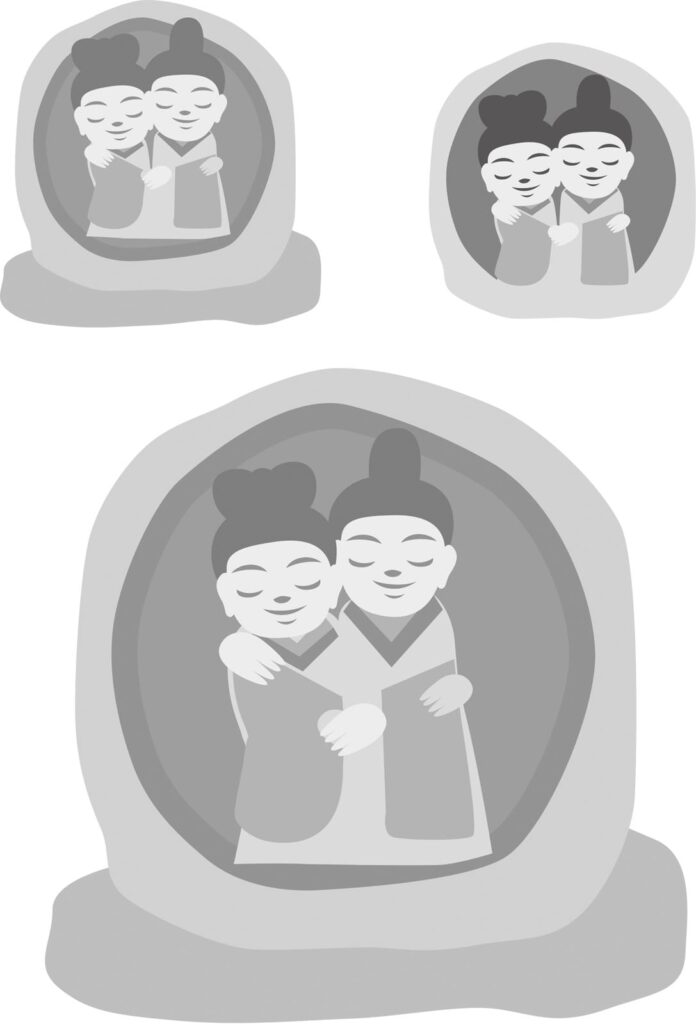
If you’ve traveled around Japan, you may have seen small roadside shrines or stone statues. These often represent protective deities called dōsojin or guardian Jizō statues, which keep travelers safe.
Villages also built small shrines at boundaries or near rice fields to honor land-protecting gods, ensuring the safety of the community.
Yaoyorozu no Kami in Japanese Culture
Shrine visits and everyday life
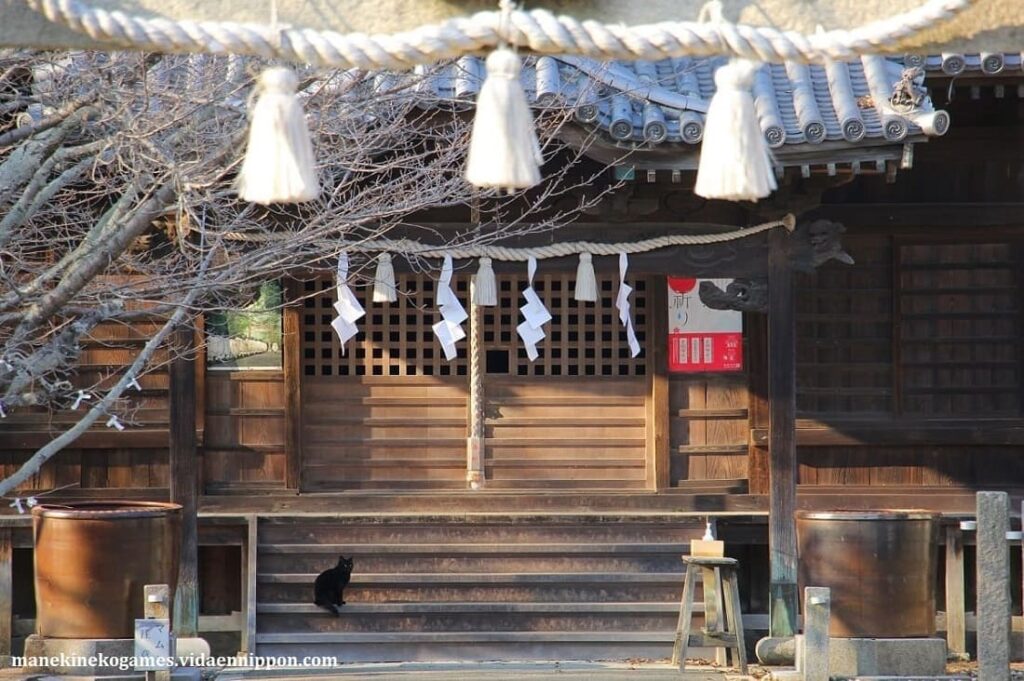
Japan is home to countless shrines, each dedicated to different gods. Visiting a shrine—whether for **New Year’s, Shichi-Go-San (children’s festival), or other life events—**is a way of expressing gratitude and asking for blessings.
Even without a strong sense of organized religion, Japanese people naturally maintain the habit of showing respect to the gods.

It’s not like people are always consciously thinking about gods, but maybe the idea is subtly ingrained. For example, the familiar saying in Japan, “Even if you do something bad thinking nobody is watching, the sun is watching you,” reflects that mindset too.
Festivals and ceremonies
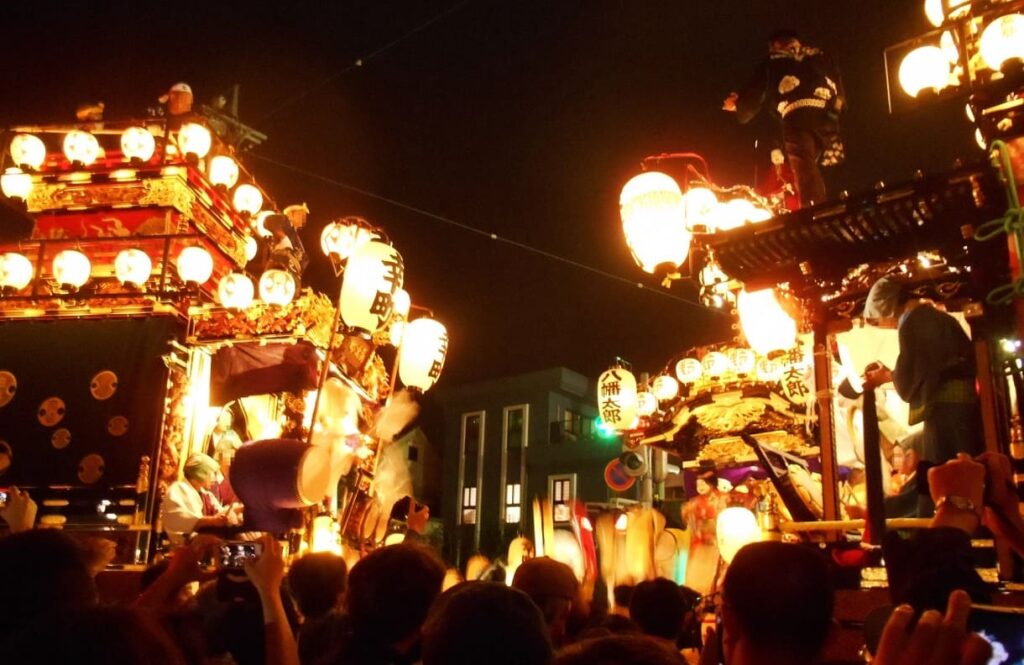
Many Japanese festivals are rooted in thanking or celebrating gods. During a festival, the deity is welcomed into the community with floats, music, and dancing. The lively atmosphere shows how deeply gods are woven into local traditions.
Gods in modern times

The belief in Yaoyorozu no Kami is still alive today. One famous example is the idea of Tsukumogami—old tools and objects that gain a spirit after many years of use. This reflects the Japanese sense that even inanimate things deserve respect.
Such thinking connects naturally to modern values like sustainability and environmental awareness.
If you are interested in Tsukumogami, please read the article below.
Yaoyorozu no Kami Q&A
- QAre there really eight million gods in Japan?
- A
Not exactly! The number is symbolic, meaning “countless” rather than literal.
- QDo shrines all worship the same gods?
- A
No. Each shrine enshrines different gods, often connected to the local area or its history.
- QHow is this different from Western religions?
- A
Instead of one almighty god, Japanese spirituality sees divine presence in everyday nature, objects, and life itself.
Final Thoughts about Yaoyorozu no Kami
“Yaoyorozu no Kami” expresses the uniquely Japanese belief that divine spirits dwell everywhere—in nature, in homes, and even in ordinary objects.
This worldview has shaped Japanese culture, from shrine visits and seasonal festivals to the way people treasure everyday items.
Understanding this idea can make everyday life in Japan feel more magical. Next time you see a small shrine by the roadside or join a local festival, imagine the countless gods quietly watching over daily life—you might feel a deeper connection to Japan’s spirit.

If you like gaming, and you are also interested in Japan, you may love these Japanese themed games!

Yes! Let’s play!


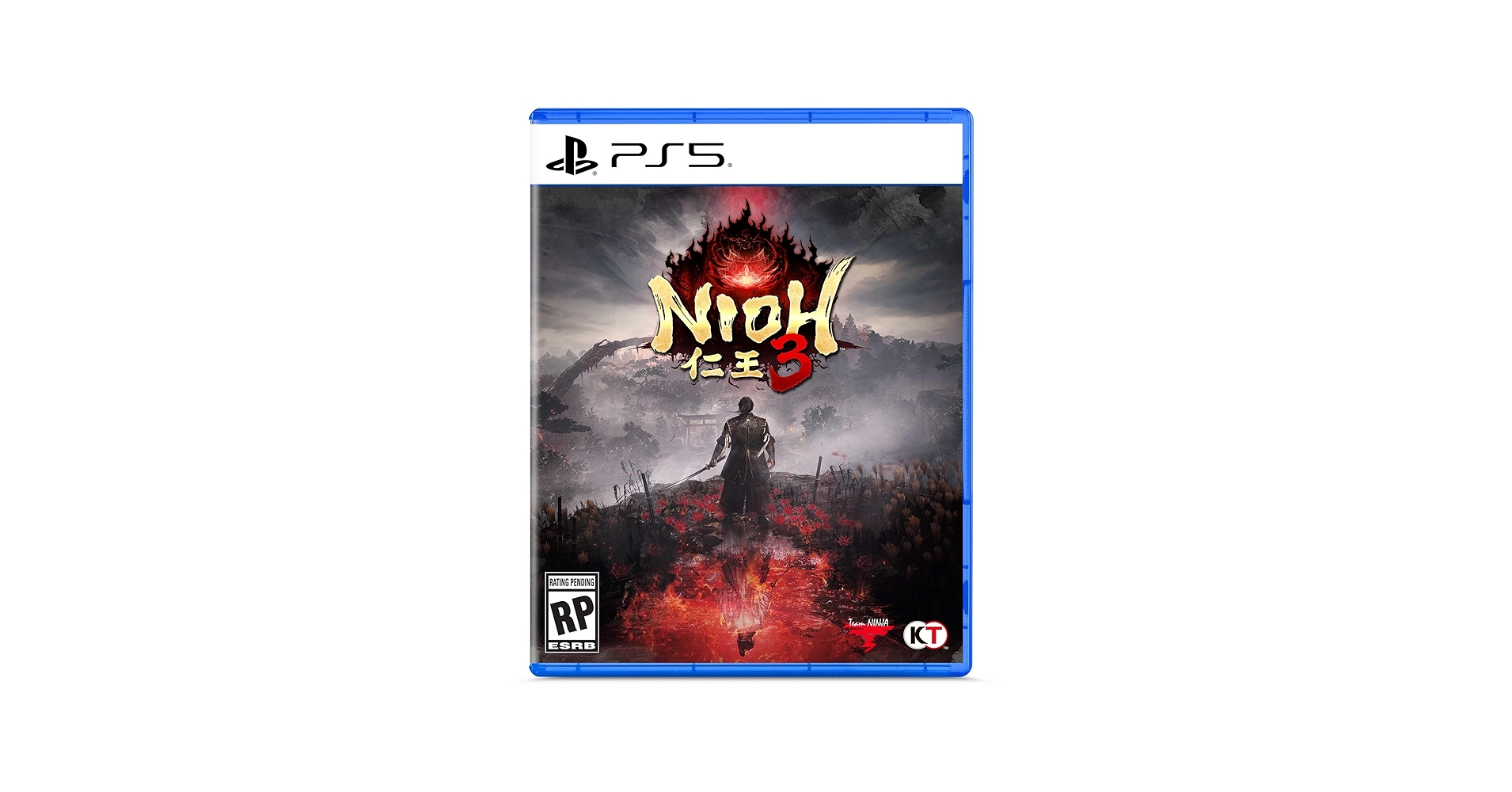


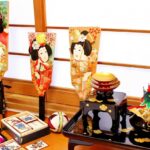

Comments